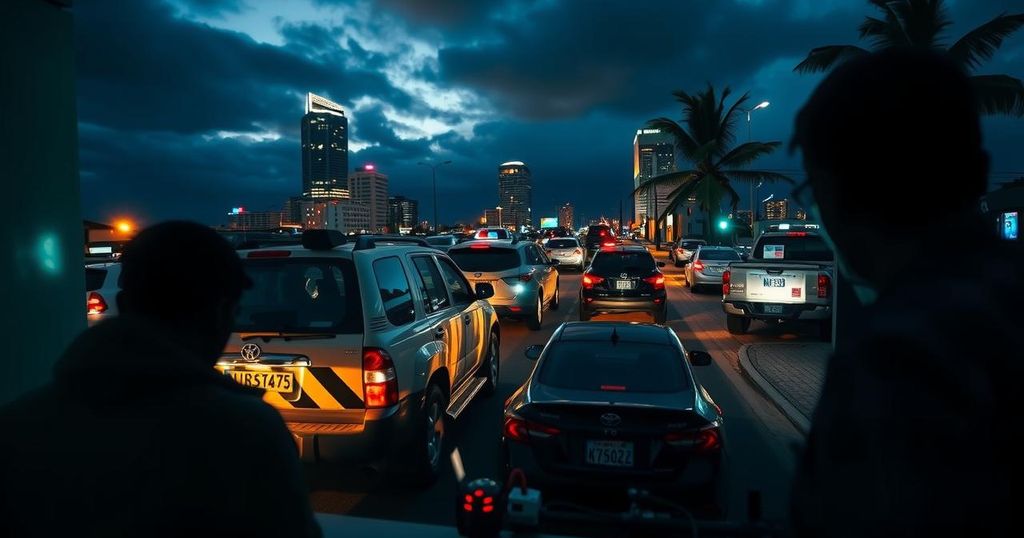Mauritius Elections: Democracy at Risk Amid Wiretapping Scandal

Mauritius is holding its 12th national election amid a wiretapping scandal involving high-ranking government officials. Approximately one million voters will cast their ballots, with significant issues concerning living costs, crime, and corruption dominating the discourse. Prime Minister Pravind Kumar Jugnauth is seeking re-election while competing against former leaders and new candidates, highlighting the tension surrounding the scandal and its potential impact on democratic processes.
Mauritius, known for its stable democracy, is gearing up for its 12th national election amidst a significant wiretapping controversy involving high-ranking government officials. Approximately one million eligible voters will participate in the election on Sunday, following the disclosure of leaked audio tapes that implicated prominent politicians in conversations disparaging opposition members and journalists. The upcoming election poses a critical juncture for the nation, as tensions have surged following a brief government-imposed social media ban aimed at mitigating the fallout from the scandal. This situation has sparked outrage and demands for accountability from opposition groups and the general population. The wiretapping scandal, which has become a central campaign issue, was ignited by a TikTok user who released recordings allegedly capturing discussions among government elites, including an accusation directed at police officials regarding the alteration of evidence in a high-profile case of police misconduct. In response to the scandal, Prime Minister Pravind Kumar Jugnauth, who is seeking re-election, initiated a judicial inquiry, suggesting the recordings may have been manipulated, while critics expressed concerns over government intimidation tactics. The political landscape in Mauritius consists of three major parties—the Militant Socialist Movement (MSM), Labour Party, and Mauritius Militant Movement (MMM)—with the MSM being the current ruling party. Economic matters are at the forefront of voter concerns, particularly the ongoing rise in the cost of living and issues surrounding crime and drug abuse, which have affixed themselves to the political discourse in light of current events. Inflation following the global pandemic, coupled with allegations of corruption linked to the government’s actions, has further complicated the electorate’s decision-making process. As the election nears, key candidates such as Jugnauth, Navin Ramgoolam of the Labour Party, and Nando Bodha of Linion Reform, are advancing their platforms while navigating accusations and public dissatisfaction regarding governance. With national unity and democracy potentially at stake, the upcoming election will serve as a referendum on not only the leading parties but on governance itself in Mauritius as citizens seek redress for both economic and political grievances.
The forthcoming elections in Mauritius are set against a backdrop of serious accusations regarding government-sanctioned wiretapping operations targeting both the political opposition and civil society. This situation challenges the integrity of the electoral process, which has historically been regarded as free and fair, with high voter turnout. Although Mauritius has experienced robust democratic practices since gaining independence in 1968, the recent allegations have raised concerns about civil liberties and governmental accountability, igniting national unrest and a call for transparency among the electorate. The socio-economic landscape, characterized by a diverse economy and notable tourism revenue, further complicates the political climate as candidates address pressing issues affecting citizens’ everyday lives.
The election in Mauritius takes place amidst a wiretapping scandal that challenges the very foundation of the country’s democratic values. With a significant portion of the electorate concerned about economic stability and governance issues such as corruption and civil rights, the outcomes may redefine the political landscape. Voters are presented with an opportunity to voice their concerns regarding both their leaders and the future direction of their nation, making this election critical for Mauritius.
Original Source: www.aljazeera.com







